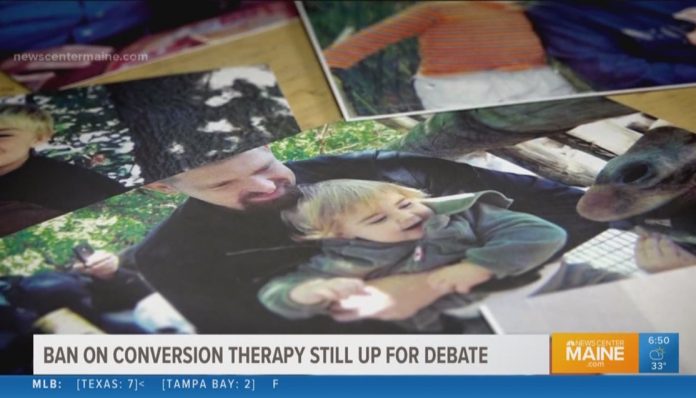
Maine Governor Paul LePage’s veto of the conversion therapy bill—which had passed both houses of the state’s legislature with strong support but was nixed by LePage—could yet be overturned, says Equality Maine Executive Director and State Rep. Matt Moonen.
“This really is about protecting the health and well-being of young people,” Moonen told The Daily Beast in an Aug. 9 article. “They should be able to expect that someone who is a licensed medical health professional, like their doctor or their counselor, would be required by the law to follow good science.”
The strategy is pretty simple: replace LePage with a new governor in the elections on November 6. Three out of the four replacements on the ballot, one Democrat and two independents, told The Daily Beast they would sign the same bill LePage vetoed.
The Daily Beast article goes on to explain:
Equality Maine’s best hope for banning conversion therapy, says Moonen, will be issuing an endorsement for a to-be-named gubernatorial candidate who could replace the two-term incumbent LePage in the forthcoming election this November. Most of the candidates would be willing to ban conversion therapy. …
A spokesperson for Democratic candidate and state Attorney General Janet Mills referred The Daily Beast to a previous statement she issued immediately after LePage’s veto, calling conversion therapy “a reprehensible practice that has no medical merit.”
“Governor LePage should have signed this bill, but where he failed, I will not,” she said.
Businessman Alan Caron, one of two independent candidates, told The Daily Beast, “I find the idea of conversion therapy both repulsive and medieval. I support a ban on this practice and will sign any bill that accomplishes this goal.”
And Terry Hayes, the current state Treasurer and another independent candidate, told The Daily Beast, simply, “When I am governor, I will sign the bill.”
Republican candidate Shawn Moody did not immediately respond to The Daily Beast’s requests for comment.
After LePage’s veto in July, the Democratic National Committee criticized Moody for being “silent” on the issue. Equality Maine has also issued questionnaires to each candidate—including Moody—to facilitate their forthcoming endorsement, but the deadline set by the advocacy organization has not yet passed.
Even if Moody were to win and follow in his predecessor’s footsteps by vetoing a conversion therapy ban, Moonen says there’s another option: a statewide ballot measure that would put the issue directly to the voters.
“That is something that we are keeping on the table as an option,” Moonen confirmed. “If our politicians in Augusta refuse to listen, we are certainly willing to consider going back to the people and asking them to vote to pass this on the ballot. We’ve done that before, and we could do it again.”








